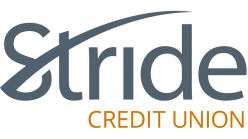
Living in uncertain times doesn’t mean you have to feel unprepared financially. Three things you can do to protect yourself are address your debts, budget and save your money, and beware of market volatility.
At a Glance
- Address your debts
- Budget and save your money
- Beware of market volatility
We are living in unprecedented times where no one can accurately predict what will happen a year, or even a month, from now. Such uncertainty has led to a weaker economy, both at home and worldwide, which is what happens whenever a major event affects society or the economy.
On the positive side, interest rates have gone down and you probably find yourself with extra time on your hands. Is there anything you can do to prepare for an uncertain financial future? Yes, there is. Here are our three top suggestions.
Address your debts
Lower interest rates can be good news for you. Here’s why:
- Lower rates mean it’s less expensive to borrow.
- Some variable credit card interest rates are tied to prime, which has dropped.
- If you don’t have debts, you may qualify for a good, low rate.
- If you already have debts, you may be able refinance larger loans or consolidate smaller ones at lower rates.
- If money is tight, you may be able to defer credit, loan or mortgage payments.
Budget and save your money
In times of social and economic uncertainty, investors look for safe ways to park and protect their money. This is a wise choice, especially if you’re spending less money and have extra time on your hands. Here are a few tips to get you started:
Save what you would have spent
Look over your accounts and credit card statements from recent months, add up any extra (discretionary) expenses during a sample month. Set that amount aside in a savings account. Whether you’re socializing less or not visiting a salon, spa or coffeeshop as often, when you’re spending less, it’s an easy time to save money.
Budget your money for one month
Use any extra time on your hands to make a budget and see what happens when you try to stick to it. You may be surprised at how easy it is, or you may learn you need to adjust your assumptions about how much things cost or how much you spend.
Make it a habit—or automatic
The saying “pay yourself first” is easy to do if, every paycheck, you transfer a set amount you decide upon to a savings account, as if it were an expense. Or, ask your credit union to set up an automatic transfer for you.
Beware of market volatility
Investments can be volatile, depending on what’s going on in the world. The important thing to remember is that rises and falls in the stock market always go in cycles; we just can’t predict what the future will hold. Also know that in the past, stock market crashes, tech and real estate bubbles and financial crises were followed by periods of growth and recovery.
It may feel like the world has slowed down, but there are things you can do while you wait.
Get good investing advice
Everybody looks for answers in times of crisis, but it’s best to turn to your credit union for guidance, rather than your neighbour or social media contacts.
Play it safe with your investments
If you’re not comfortable with the volatility of the stock market, then invest your money in bonds. The returns aren’t as high, but the risks are much lower.
Don’t panic
Ignore the daily activity of your investments. Markets are down right now, but it’s just a matter of time before they start to recover and the cycle begins again.
Summary
The world today looks very different than a year—and even a few months—ago. However, the best way to deal with financial uncertainty is to know where you stand financially, know what your options are, and don’t act impulsively. Here’s a recap…
- Pay attention to lower interest rates and manage your debt wisely.
- Get a handle on what you used to spend, make a budget, and use this opportunity to save what you would have spent.
- While you wait for the economy to recover, get good investing advice, don’t invest in anything risky, and don’t watch your holdings too closely.
Please consider the information in this article as a suggestion, not investment advice. Before making any investment decisions, you should always consult an investment professional.
Talk to us today about how we can help you become more confident about your finances, even in these uncertain times. We’ll help you figure out your best path forward.
If you liked this article, you might want to read
7 Ways to Save Money When You Get Paid
